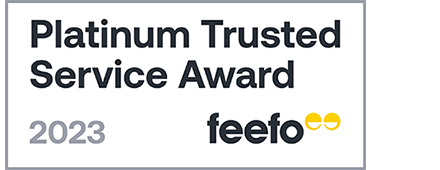how to handle late payment of service charges
As every property manager, Resident Management Company and freeholder knows, service charges are the lifeblood of property management. Without that regular flow of cash it’s nigh on impossible to keep an apartment block running safely and cleanly without heading into serious financial difficulty.
The effect of non-payment of service charges can be crippling. Without the cash in the bank to pay suppliers, those relationships you’ve worked hard to establish are put under jeopardy. Not to mention the short-term financial stability of the block, along with its cleanliness, desirability and ultimately it’s long-term commercial value.
Chasing late payment or non-payment of service charges is a huge drain on management time. Extra paperwork, extra phone calls, the chasing, appeasing and negotiation. So how can you make sure your service charges are paid on time and avoid this stress?
keeping those pennies rolling
The best thing you can do to avoid late payment of service charges is to get your ducks in a row from the outset.
This whole cycle starts with good communication, but there are some deterrents you can add in to encourage folk to pay on-time and ways of working things out if they don’t.
Here are our top tips:
1) set things out in the lease
The terms of your lease should be very clear on all things service charge related, so that flat owners know up-front what their obligations are.
The lease should ideally include details on how the service charge is calculated, what it will be used towards, whether there is any provision for the collection of a reserve fund, and when owners will be expected to pay.
If there is any ambiguity here, it might be worth considering a formal review of the terms to ensure there is no room for creative interpretation! (Note: you’ll need to get legal support and consult with residents if you do want to do this).
2) get your paperwork perfected
Our advice is to make everything about your service charge demands really straightforward and easy. That means:
a) A clear summary of charges to be paid
b) A plain-English explanation of why charges might be different to the previous year (if they are)
c) Details of how tenants can make their payment (if possible, consider accepting multiple payment methods, such as online/Paypal, bank transfer and cheque so people can pick the method that’s easiest for them)
d) A clear payment deadline
e) Details of what will happen if tenants pay late
f) Details of who a tenant can speak to if they have any queries. It’s better to openly welcome a conversation about service charges and tackle queries up-front, than to wait for a tenant to withhold payment
When the time comes to issue your service charge demand, you have a legal obligation to also provide a Summary of Tenants Rights and Obligations. Do this every time, because without it tenants can legally withhold payment for no reason other than the fact you haven’t included the summary!
3) get a good system
Our advice is that you develop (or sign up to) a really robust system for communication and payment processing. There are some great tools on the market that will automate a lot of the process, helping you to keep on top of issuing demands promptly, tracking payments, flagging non-payers and sending out reminders.
If you can get the system to do the donkey-work, it’s our experience that the majority of tenants will pay on time and without query. A good system also means that your admin costs and follow-up time for late payers are both reduced.
Get all of your letter templates cued up, so that in the event of late-payment or non-payment, the cases get escalated automatically (for example, extra interest added to the tenant’s account, referral to solicitor, etc). Your management time is then saved for following up those few cases that really do need personal intervention.
4) add a carrot (and a stick)
We prefer the carrot approach (i.e. being helpful and organised up-front). You might consider offering payment plans for those tenants who are struggling financially. Getting part-payment every month for 6 or 12 months, is far better than getting nothing at all!
Sometimes you also need a stick though. Provided the terms of your lease allow for it and clearly set out the details, you can charge interest on any unpaid service charges. You can also add extra admin charges to cover the time and cost of chasing late payment. These financial penalties are usually enough to mop up most late-payers pretty quickly.
when all else fails
It’s far from ideal when you’re landed with a total non-payment situation, but it happens. In our experience, it is always worth trying to have a conversation with the tenant in question before escalating the case to a solicitor, just to rule out the possibility that they’ve either genuinely missed the demands or are struggling to make the payment.
It’s also good to check that the flat owner isn’t withholding payment due to some concerns over how the block is being managed.
But, if none of this is the case and you’ve simply got a stubborn tenant or someone who has gone walkabout entirely, legal action is likely to be the only remaining option. This can be a costly way of sorting things out and is not guaranteed to result in full payment, but it does mean the process is then handled by an impartial third-party, which can be important if you want to keep a good relationship with the tenant (or others in the block).
the power of good property management
Handling service charges is a hugely important part of the smooth running of your block. If it’s becoming a headache for you or your Resident Management Company, then get help from an experienced property management company who already has the staff and systems to get this all ticking over like clockwork. (p.s. we know a good one, if you’re after recommendations!).
useful resources:
If any of your tenants are struggling financially and could benefit from confidential, unbiased financial advice, you could refer them to:
For more info on Service Charges take a look at:






